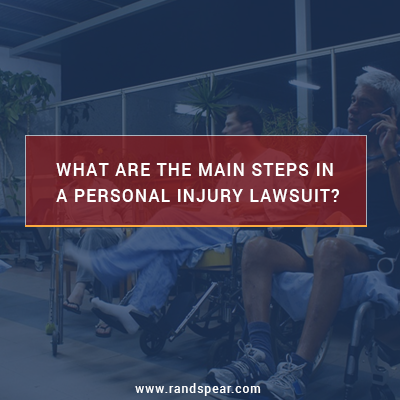SOCIAL MEDIA BEST PRACTICES FOR PERSONAL INJURY VICTIMS
Since social media was created, it continues to become a bigger part of our society. It is used for sharing life updates, communicating with family, and connecting with friends. According to The Washington Post, Facebook is the connective tissue between nearly 3 billion people around the world. When using social media, it is important to consider that a post shared on those platforms is essentially going public. Even with the highest privacy settings, individuals, not in your immediate circle, can see your posts without your knowledge.
Since social media is essentially a public forum, a personal injury victim should ask themselves, “how social media can impact my personal injury claim.” There is a connection between social media and personal injury claims, where information shared on a social platform may negatively affect a claim. Social media activity may directly or indirectly work against your case in many ways.
- A post about your accident may cause the facts of your case to be in doubt.
- Information on social media may discredit your character.
- A picture or check-in may cast doubt about the severity of your injuries caused by the personal injury accident.
When you are involved in a personal injury case, the best general social media guideline for personal injury victims is to take a break from sharing or posting. If you cannot break from social media, all clients should consider following a list of social media guidelines for personal injury victims. Below is a list of some of the social media best practices for personal injury victims.

AVOID POSTING ON SOCIAL MEDIA
The easiest rule for social media and personal injury claims is not to post on social media while your claim is active. This is a guaranteed way to eliminate the impact of social media on a personal injury claim. By sharing less information on your social profiles, there is less chance the posts or information can be used against you.
INCREASE THE PRIVACY OF ALL SOCIAL MEDIA PROFILES
Even with privacy settings turned-on, the amount of people that will see your posts is not as small as you think. Increasing privacy will not completely hide the information you post. Many privacy settings on social platforms still allow connections of your family and friends to see your profile. Also set all of your social media posts to “not sharable”. With this setting, family and friends cannot share your posts with all of their social media followers.

DO NOT POST INFORMATION ABOUT YOUR ACCIDENT ON SOCIAL MEDIA
Social media posts about your accident carry a high risk of both intentionally or unintentionally damaging your personal injury case. A simple update about your health following an accident can even be used against you. While social media posts provide a quick way to update all of your family and friends at once, these posts are public, so sending updates individually through texts or emails protects you and your personal injury claim.

AVOID POSTS THAT CONTRADICT YOUR TESTIMONY REGARDING THE ACCIDENT OR INJURY
After your personal injury accident, you will claim injuries from the incident. Any posts or pictures about activities you do following your accident may contradict the injuries you are reporting. The liable parties are actively looking for any evidence that proves the accident injuries are not severe enough to justify your personal injury claim.
As seen above, how social media impacts personal injury claims is an important topic. There is a complicated relationship between social media and personal injury claims. Social platforms are another avenue to get information that may negatively impact your personal injury claim. This means it is important to follow social media guidelines for personal injury victims.
At Spear Greenfield, our personal injury attorneys have over 200 years of combined legal experience. We have seen social media’s impact on personal injury claims, so we can advise you properly to protect your case. Rand Spear and the Spear Greenfield team offer a free consultation to learn more about your incident. We also provide you with the legal guidance to make the right decision!
Call or text (215) 985-2424 or complete a Free Case Evaluation form











